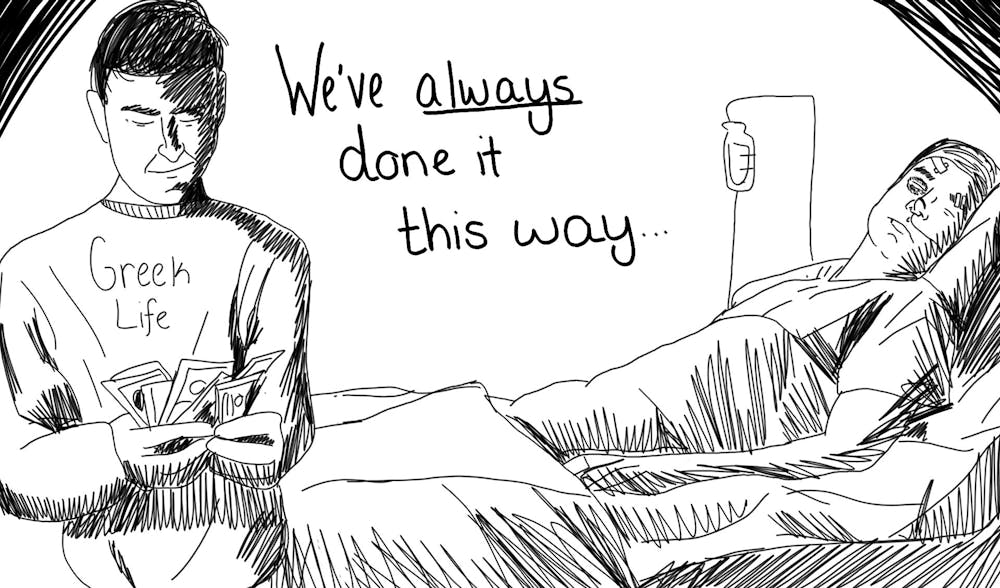“We’ve always done it this way.”
That’s the mindset so many unfortunately stand by when it comes to hazing, or as they like to call it, “tradition.” In light of the recent allegations toward Theta Xi, the discussion of hazing has circulated throughout the campus community and raises the question: Do we as a society perpetuate hazing and the culture around it?
Hazing has no place in any club or institution. Just because “everyone’s been through it, so you have to go through it” doesn’t mean you have the right to harm others. It is simply not a way to bond. The ideas of “this is how it’s always been done” and “I had to go through this, so you should too” are nonsense. Being a victim does not give you the right to victimize others.
If something is illegal, that means it is against the law. There are so many discrepancies with the idea of “hazing” nowadays, and it can be something extremely simple or something heinously traumatic. At the end of the day, if you are doing something because it is “tradition” or “you want to prove someone is trustworthy,” create a new tradition that cannot get others in trouble. Do not drag people into your future drama. It is unfair. People know what they are getting themselves into but prove them wrong. It is more respectable to treat people with kindness and welcome than to do bad things, get caught and be mad about it. What world do we live in where we cannot own up to our mistakes? Our knowing mistakes? We have to get it together.
It is hard to understand why some parts of Greek life hold on to harming each other so fiercely. It does not form any sort of connection that cannot be formed in a more productive way. My fraternity has new members interview older brothers to get to know them and also hosts events for everyone to come together and connect. That is how you should bond, not by intentionally hurting each other.
Every exclusive organization has its requirements and customs, and some of these can be challenging or unusual. It should not be easy to receive membership in an exclusive organization like a fraternity or a sorority because if it were, then the organization lacks purpose and standards.
The process should still be a fun and rewarding way for pledges to bond with other pledge mates, in addition to brothers and sisters who supervise it. Hazing flies against this philosophy. Enduring humiliation and danger are neither fun nor rewarding, and it is unnecessary because there are infinitely many other ways to challenge pledge classes without subjecting them to perverse forms of ritualistic allegiance. Any organization that justifies hazing because it supposedly creates social cohesion is condemning itself.
There is a fine line between initiation rituals and hazing, and it all comes down to who is executing them. Rituals are fun — think of graduation, senior pranks, athletes kissing the field, signing off on banners, etc. Rituals bring people together and create bonds.
Hazing is the opposite. It sets up an unbreakable power dynamic and puts people’s lives at risk. Even “tame” examples of forcing people to drink [even if they consent] put their bodies in harm’s way. And for what? For the people forcing others to do these things to get a power high. To feel better than the people they are abusing —which hazing is, abuse.


The Slate welcomes thoughtful discussion on all of our stories, but please keep comments civil and on-topic. Read our full guidelines here.